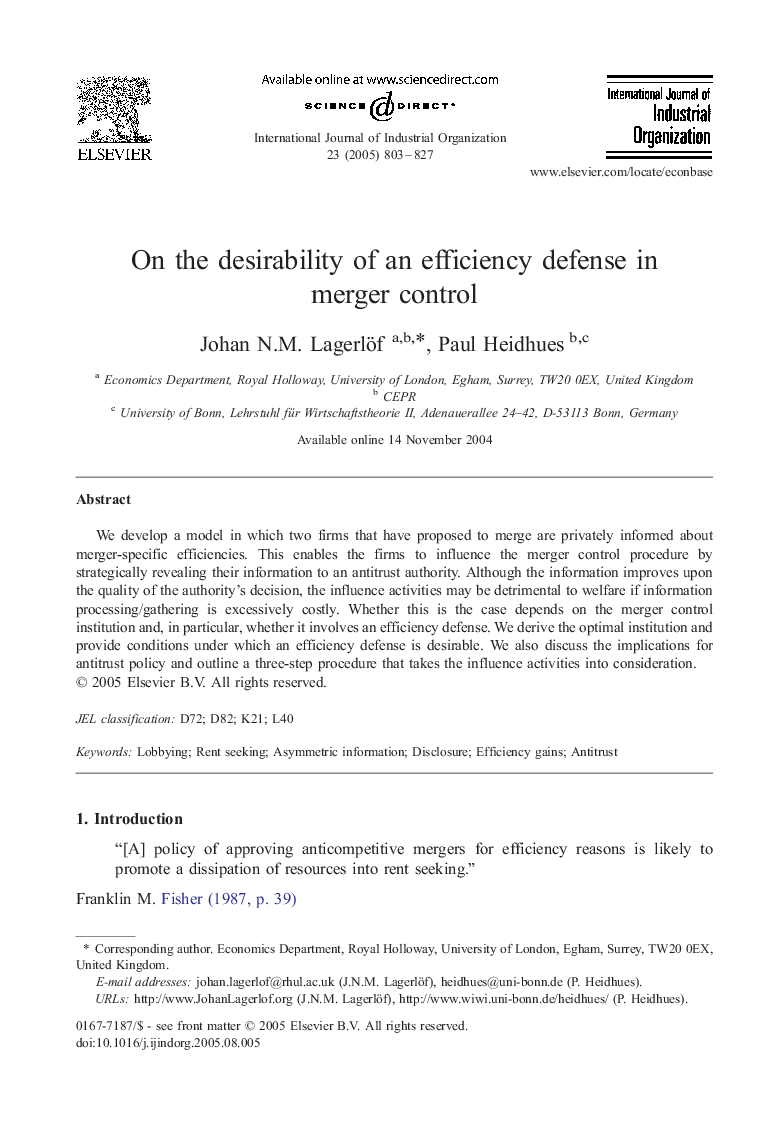| Article ID | Journal | Published Year | Pages | File Type |
|---|---|---|---|---|
| 9724474 | International Journal of Industrial Organization | 2005 | 25 Pages |
Abstract
We develop a model in which two firms that have proposed to merge are privately informed about merger-specific efficiencies. This enables the firms to influence the merger control procedure by strategically revealing their information to an antitrust authority. Although the information improves upon the quality of the authority's decision, the influence activities may be detrimental to welfare if information processing/gathering is excessively costly. Whether this is the case depends on the merger control institution and, in particular, whether it involves an efficiency defense. We derive the optimal institution and provide conditions under which an efficiency defense is desirable. We also discuss the implications for antitrust policy and outline a three-step procedure that takes the influence activities into consideration.
Related Topics
Social Sciences and Humanities
Economics, Econometrics and Finance
Economics and Econometrics
Authors
Johan N.M. Lagerlöf, Paul Heidhues,
